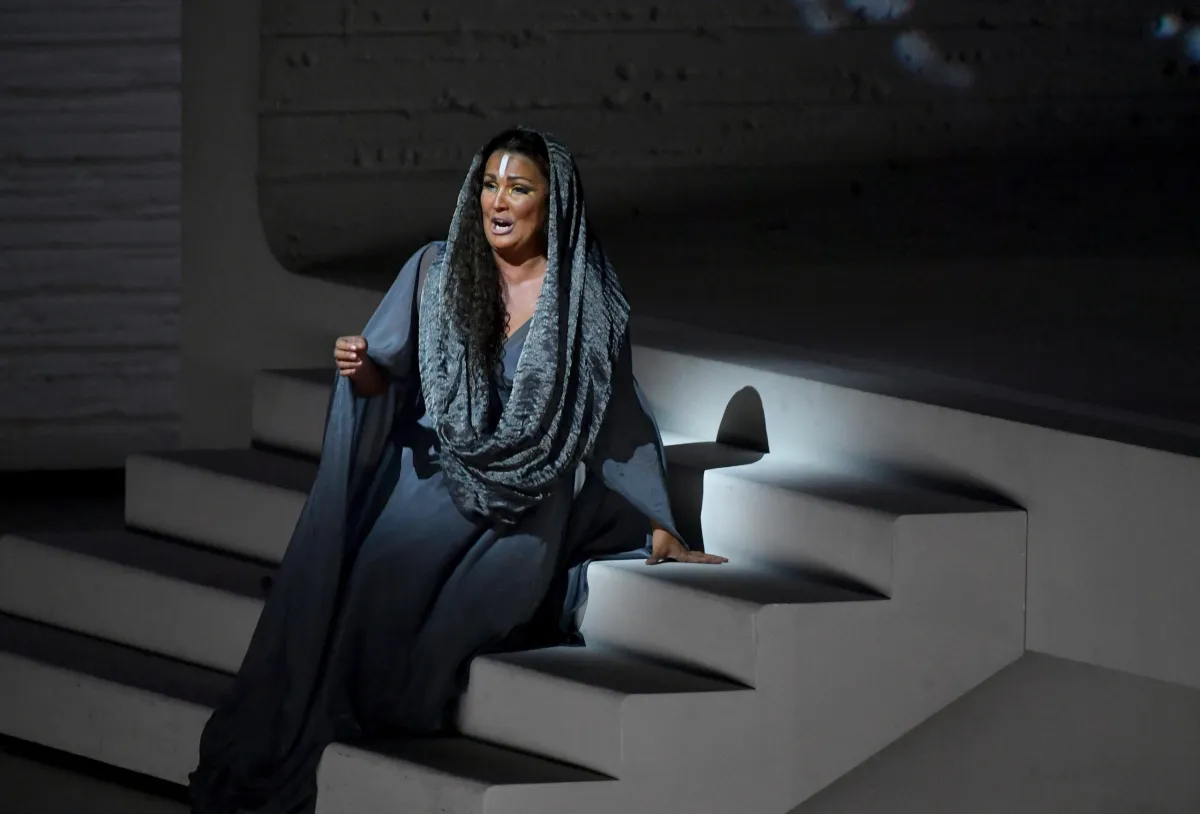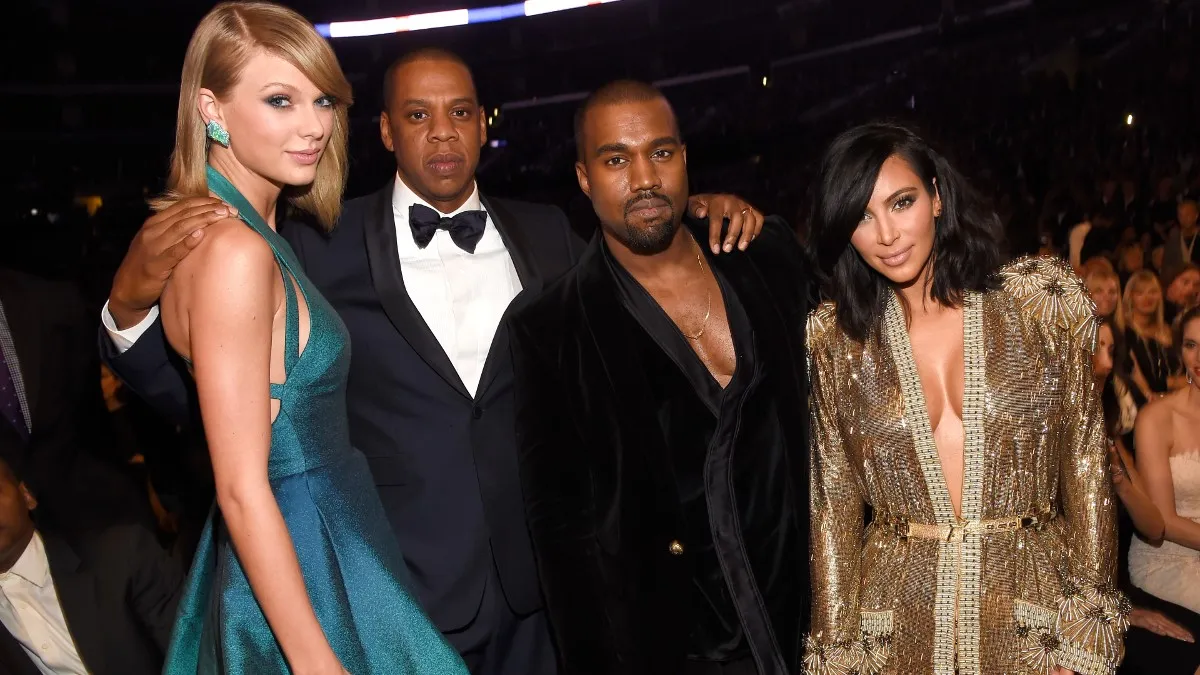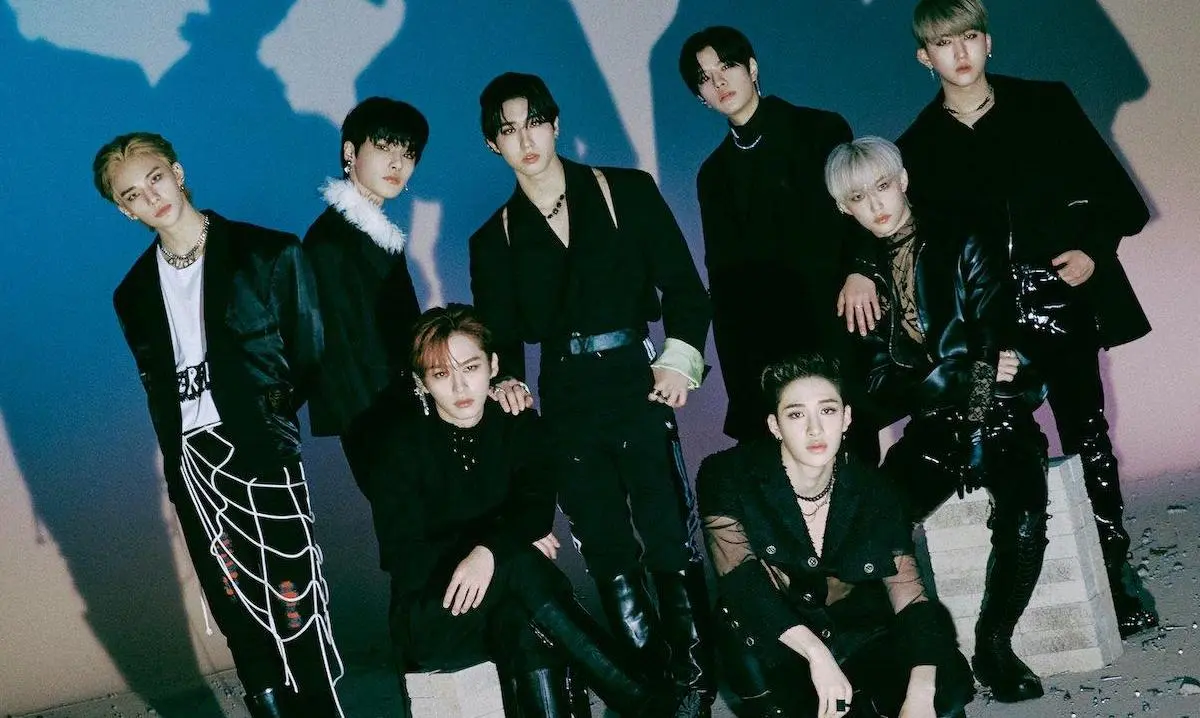Anna Netrebko is one of the most celebrated and famous dramatic sopranos in the world. She’s performed in opera houses the world over and it was announced last week that she will be part of a new production of Giuseppe Verdi’s Aida at The Metropolitan Opera. The character of Aida is an Ethiopian Princess made a slave in Egypt. Anna Netrebko is white.
This will not be the first time Netrebko has played Aida, but it will be more controversial given the fact that she basically put on blackface last time she was in the role and dismissed concerns regarding the insensitivity of that. Faced with criticism, she posted: “Black Face and Black Body for Ethiopien [sic] princess, for Verdi[‘s] greatest opera! YES!”
Now, I will give Netrebko, who is Russian and lives in Austria, the benefit of the doubt here. Blackface, as associated with minstrelry, Jim Crow and systemic racism, is a mainly American phenomenon and the opera world is incredibly insulated from progressive concepts like … not harassing women or the idea that blackface is wrong. Netrebko was doing something hundreds of white Aidas before her have done. But times have changed.
The fact that the Met is signing her on after this is still … troubling, but Aida isn’t the only non-white Character in Netrebko’s repertoire. She just finished a run in Puccini’s Turnadot where she played the titular Chinese princess …
View this post on Instagram
…что растопит ее ледяное сердце?.. what will make her ice 💙 melt? .. #turandot
YUP. That’s not just racist but it’s normal for opera. Netrebko is hardly alone in being a white person playing non-white characters on the operatic stage. And this whole situation points to a bigger problem in the opera world: how do we adapt but still honor an art form that has some pretty racist elements?
Much like in the works of Shakespeare where great parts like Othello or every woman was not written at the time to be played by performers matching the race or gender of the character, many, if not most operatic roles weren’t written for the people they are about. Opera is a European and Euro-centric artform and thus is comes saddled with all the racist baggage and white-focused world view of its creators.
The people that created the opera we love (well, that I love, you may be ambivalent) were racist and part of racist societies. No, I’m not even going to get into Wagner, that’s a whole other thing. But opera has a long history with orientalism specifically.
From Mozart’s weird journey into an imagined version of Turkey in The Escape from the Seraglio to Bizet’s Pearl Fishers to Gilbert and Sullivan’s The Mikado. Verdi and Puccini were white Italian men writing about black and Asian characters (Verdi had his own Otello, along with Egyptian-set Aida) and along with Turnadot, set in China, Puccini also gave the world Madama Butterfly, which is about a Japanese woman. Fascination with non-European cultures is common in opera and none of these countries or cultures is depicted in a particularly accurate or realistic way. Neither is anything much in opera.
Opera has a pretty flimsy relationship to reality. Just look at how opera handles gender. In the baroque era, it was popular for castrated men (Castrati) to play female roles, and then later, trends reversed. Women nowadays still play men in what we call “trouser roles.” (I’ve performed two myself!) Audiences are used to people screaming high Cs when they’re dying of tuberculosis and 40-year-old women playing sixteen-year-old girls and boys—people acting outside their race is just another day at the theater for many opera fans.
But despite their desire to live in a bubble, opera fans and performers do need to acknowledge that we live in a different climate now and that the racist elements of opera that passed without protest in the past need to be reexamined and dealt with. Opera’s refusal to connect its characters to reality is great sometimes: it allows for people of any age or size or race to play any role so long as they can sing it. But there should probably be limits when it comes to race.
This has actually already started. In 2015, the Met finally announced they would not be using blackface for Otello … but they are currently selling tickets for a traditional, China-set production of Turandot without a single Asian person in the cast. (Really?!) The real solution here would be to cast actual people of color in roles like this—especially since they need opportunities in the conservative and, frankly, extremely dated world of the opera.
But that’s just one element. If a company is doing a “traditional” production of a piece like Aida or Turandot they should not use blackface, dark makeup or yellowface. If they can’t cast people of color for some stupid reason, they should make the production non-traditional, which is something opera companies do all the time. Set your Aida in Ancient Greece or Imperial Russia or on the moon, It doesn’t matter so long as the music is there.
Resolve to do something, because otherwise this insistence on perpetuating the racism of the past becomes just another reason for people to dismiss opera as an out-of-date, boring, irrelevant type of art and that’s sad. Because opera is wonderful and moving—it just needs to move into the present if it’s going to have any sort of future.
(via: Observer)
Want more stories like this? Become a subscriber and support the site!
—The Mary Sue has a strict comment policy that forbids, but is not limited to, personal insults toward anyone, hate speech, and trolling.—









